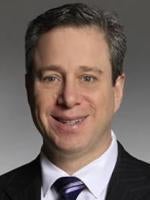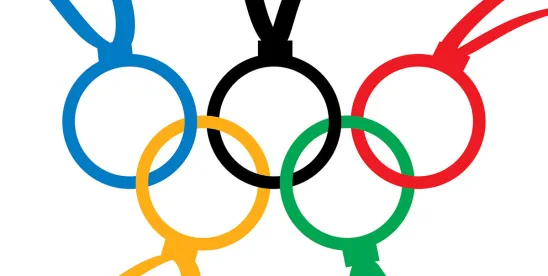Historically, the Olympic Games rank high as one of the most effective international marketing platforms in the world, reaching billions of people in more than 200 countries and territories across the globe.[1] The International Olympic Committee (IOC), the governing body of the Olympics, capitalizes on this marketing opportunity to support the staging of the Olympic Games and to promote the development of sports worldwide by distributing more than 90 percent of its revenues to organizations throughout the Olympic Movement.[2]
Many of these organizations are the National Olympic Committees and National Paralympic Committees for the participating countries.[3] The United States Olympic and Paralympic Committee (USOPC) is one of the few National Olympic Committees that manages both Olympic and Paralympic activities, so it is responsible for fielding and supporting U.S. teams for the Olympic, Paralympic, Youth Olympic, Pan American, and Parapan American Games.[4] But, unlike other National Olympic Committees, the USOPC does not receive governmental funding.[5]
Through the enforcement of Olympic IP rights, the USOPC can facilitate private sponsorships that provide a primary revenue source by combatting and preventing “ambush marketing” — the unauthorized use of advertising terms to create a misleading commercial association, usually during a big event.[6] The USOPC states on its Commercial Use Guidelines page, “When others use USOPC IP without authorization, it creates a disincentive for our partners to continue funding Team USA in exchange for the right to promote that association with the U.S. Olympic and Paralympic Team.”[7]This sentiment is further evidenced by the Olympics’ Rule 40, which prohibits Olympics-related words from being used by non-official sponsors during the games and even requires athletes to sever ties with non-Olympic sponsors.[8]
It is not hard to understand why the USOPC has developed a reputation for aggressively defending its intellectual property.[9] From the USOPC’s point of view, unauthorized use of words and symbols for advertising can confuse consumers into thinking brands are associated with the Olympics when those words and symbols are not.[10] The real official sponsors — brands such as Coca-Cola, Samsung, and Visa — pay a lot of money to be able to say they are “Official Team USA Sponsors.”[11] To the USOPC, every instance of a company not associated with the Olympics, but using the Olympics in advertisements, is a dilution of the Olympic brand.[12]
The USOPC has even been given special consideration and an elevated level of protection in defending its intellectual property. The statute created by the Ted Stevens Olympic and Amateur Sports Act (36 U.S.C. § 220506[13]) gives the USOPC statutory authority over various Olympic symbols, words, and emblems, and is exceptionally strong in comparison with traditional trademark rights for two reasons: (1) the USOPC does not need to prove likelihood of confusion during disputes; and (2) the USOPC is afforded all protections of the Lanham Act, while none of the traditional defenses for potential infringers are available.[14] That said, protection under the statute is limited to use of the Olympic properties in trade, and courts have stated that a First Amendment defense may be available for uses not in connection with the sale of goods.[15]
One of the earliest enforcement actions initiated by the USOPC was brought against former Olympic decathlete, Tom Waddell, for starting a multisport competition for gay and lesbian athletes called the “Gay Olympics.”[16] The USOPC suit (San Francisco Arts & Athletics, Inc. v. USOC, 483 U.S. 522, 547–48 (1987)) forced Waddell to change the name of the event to the “Gay Games” less than three weeks before the first one was held in 1982.[17] In 1987, the Supreme Court ultimately sided with the USOPC, and provided the basis for the current enhanced trademark protections, by holding that the USOPC was not required to prove that a contested use of the word “Olympic” was likely to cause confusion, and an unauthorized user of the word did not have available the normal statutory defenses.[18] Additionally, Waddell’s claim that the USOPC had enforced its rights in a discriminatory manner failed because the USOPC is not a government actor.[19] However, the Gay Games has continued to be held every four years since 1982 and has had a good working relationship with the USOPC since the 1990s.[20]
The USOPC has been known to pursue enforcement against a wide range of actors, for example, social media accounts using official Olympics hashtags, businesses with the word “Olympic” in the name, and even a group of knitters organizing a “Ravelympics.”[21] In most of these cases, the USOPC sends cease and desist letters,[22] although it is not afraid to take more serious action. In February 2021, the USOPC filed a complaint against Puma for infringing and ambushing on certain marks and causing confusion among consumers from advertisements utilizing the Puma branding in connection with USOPC-owned trademarks, such as “Tokyo 2021.”[23] In July 2024, the USOPC filed suit against energy drink company, PRIME, and YouTube stars, Logan Paul and KSI, for trademark infringement of phrases and symbols associated with the 2024 Paris Olympics, including “Olympic,” “Olympian,” “Team USA,” and Going for Gold.”[24] It is noted that if the USOPC does not enforce its trademark rights, then the strength and value of the intellectual property would be reduced or lost, so any unauthorized use of a trademark, or a use that is confusingly similar to a trademark owned by USOPC, is enforced in some manner to avoid loss of USOPC trademark rights.
Intellectual property protection, such as trademark and copyright protection, allows the USOPC to preserve iconography related to the Olympics and prevent confusion of the general public, keeping the flame of the Olympics alive. The USOPC relies on such intellectual property protection to fund a greater overall Olympic movement, and so must take strong measures to enforce it.
Special thanks to James Chard, summer associate in our Chicago office, for his contributions to this article.
[1] https://www.wipo.int/wipo_magazine/en/2012/03/article_0003.html
[2] Id.
[3] See https://www.usopc.org/about-the-usopc
[4] Id.
[5] Id.
[6] https://ipwatchdog.com/2021/08/03/u-s-olympic-paralympic-committee-gold-standard-trademark-protection/id=136294/#; https://www.cnbc.com/2016/08/18/olympic-lawyers-go-for-gold-in-trademark-protection.html
[7] https://www.usopc.org/commercial-and-brand-usage-guidelines
[8] https://www.cnbc.com/2016/08/18/olympic-lawyers-go-for-gold-in-trademark-protection.html
[9] Id.
[10] Id.
[11] https://ipwatchdog.com/2021/08/03/u-s-olympic-paralympic-committee-gold-standard-trademark-protection/id=136294/#; https://www.cnbc.com/2016/08/18/olympic-lawyers-go-for-gold-in-trademark-protection.html; https://olympics.com/en/paris-2024/committee/games-stakeholder/partners
[12] https://www.cnbc.com/2016/08/18/olympic-lawyers-go-for-gold-in-trademark-protection.html
[13] https://www1.villanova.edu/villanova/law/academics/sportslaw/commentary/mslj_blog/2022/OlympicIntellectualProperty.html; https://ipwatchdog.com/2021/08/03/u-s-olympic-paralympic-committee-gold-standard-trademark-protection/id=136294/#
[14] https://www1.villanova.edu/villanova/law/academics/sportslaw/commentary/mslj_blog/2022/OlympicIntellectualProperty.html; https://supreme.justia.com/cases/federal/us/483/522/
[15] Id.
[16] https://www.outsports.com/2011/8/8/4051664/moment-56-supreme-court-rules-against-gay-games-in-use-of-olympics/
[17] Id.
[18] S.F. Arts & Athletics, Inc. v. USOC, 483 U.S. 522, 530 (1987).
[19] Id. at 547.
[20] https://www.outsports.com/2011/8/8/4051664/moment-56-supreme-court-rules-against-gay-games-in-use-of-olympics/
[21] https://www.cnbc.com/2016/08/18/olympic-lawyers-go-for-gold-in-trademark-protection.html
[22] Id.
[23] https://www.sportico.com/law/news/2021/puma-declared-war-1234623339/





 />i
/>i
